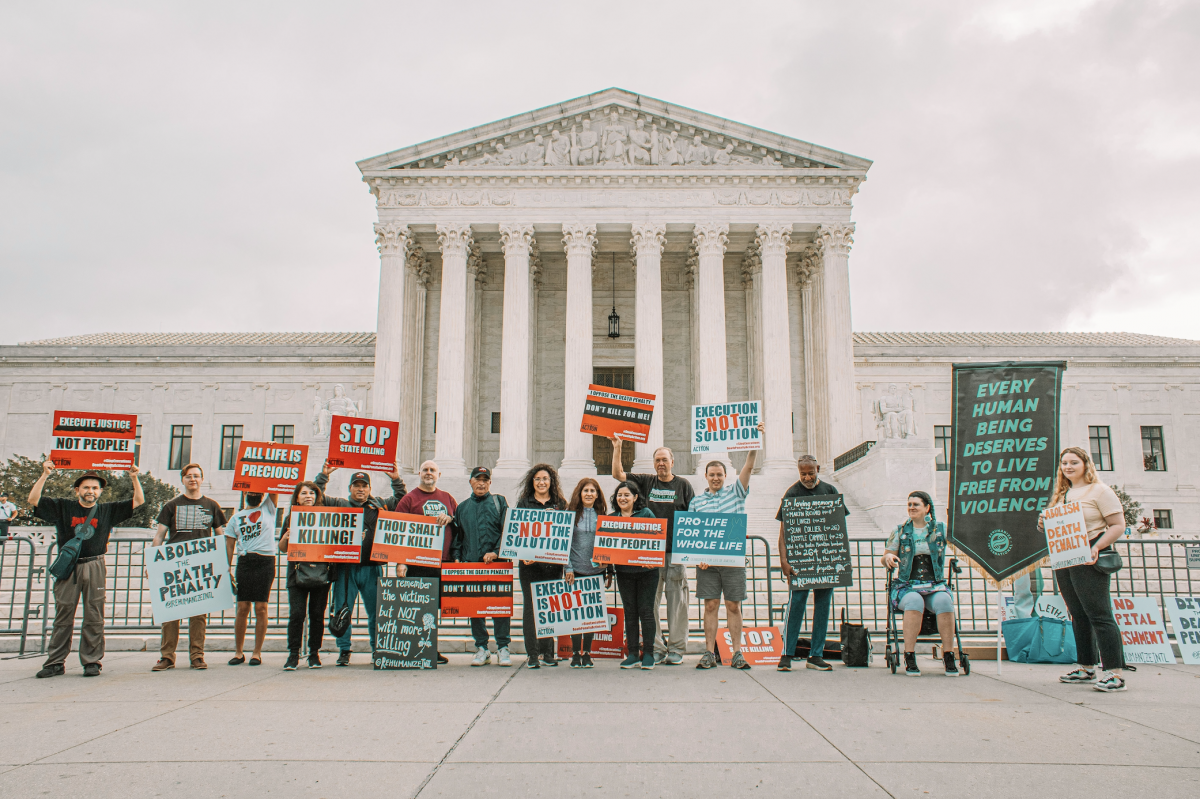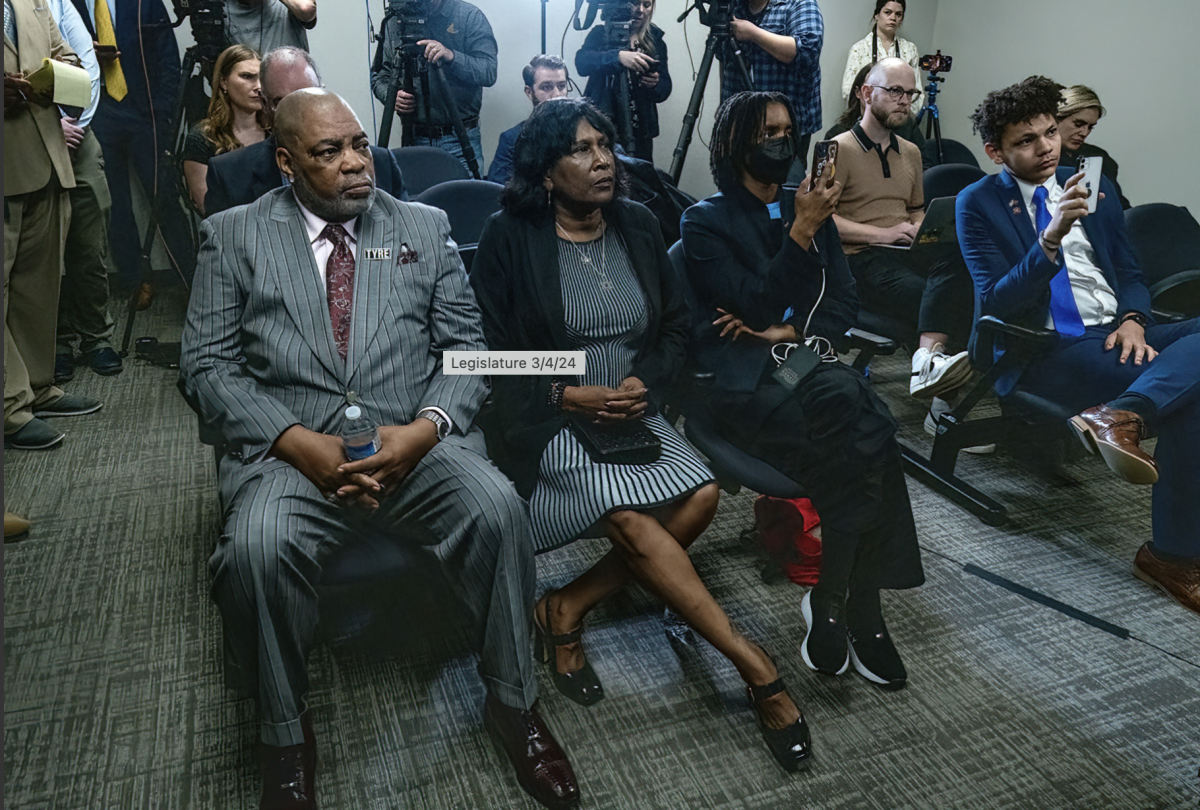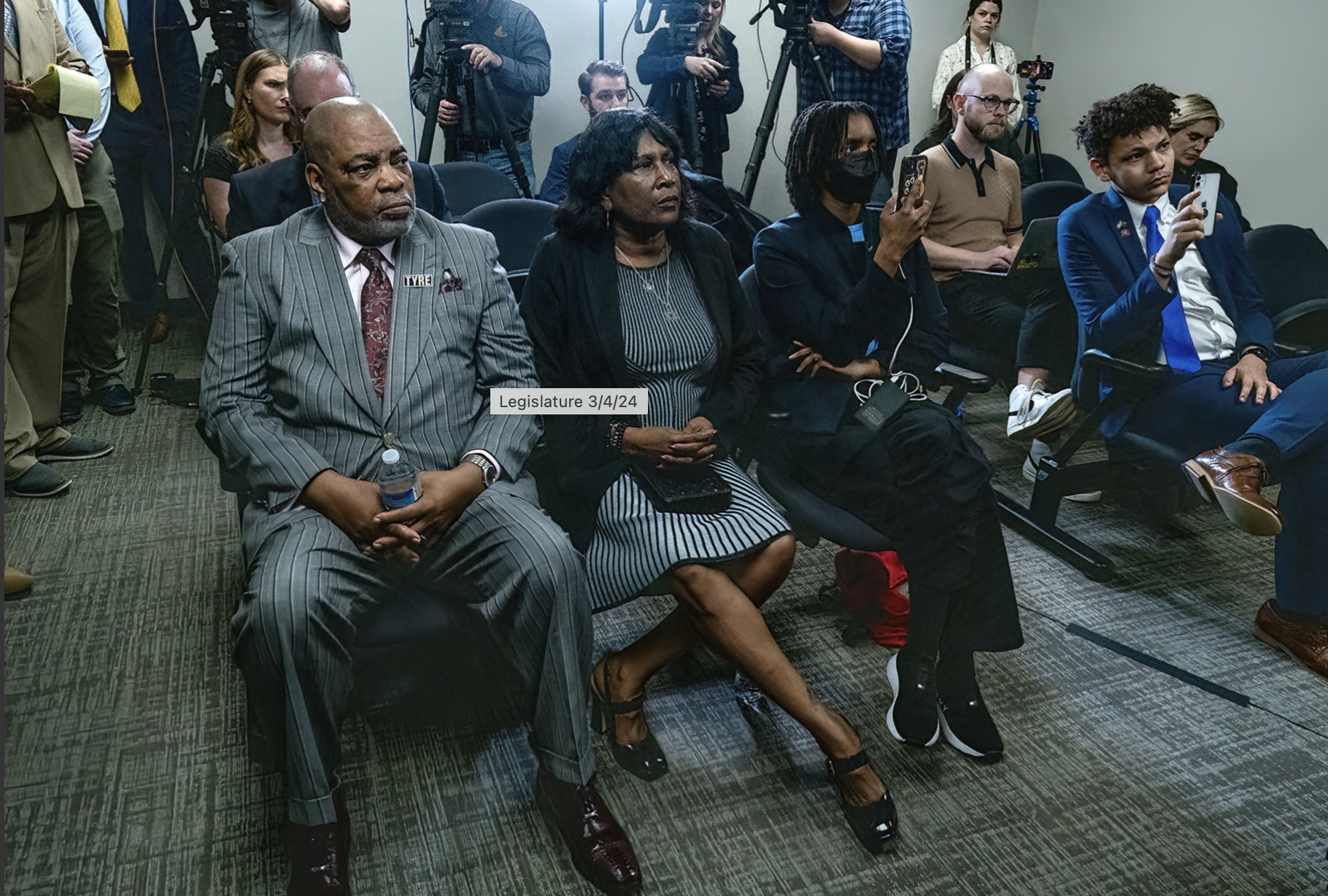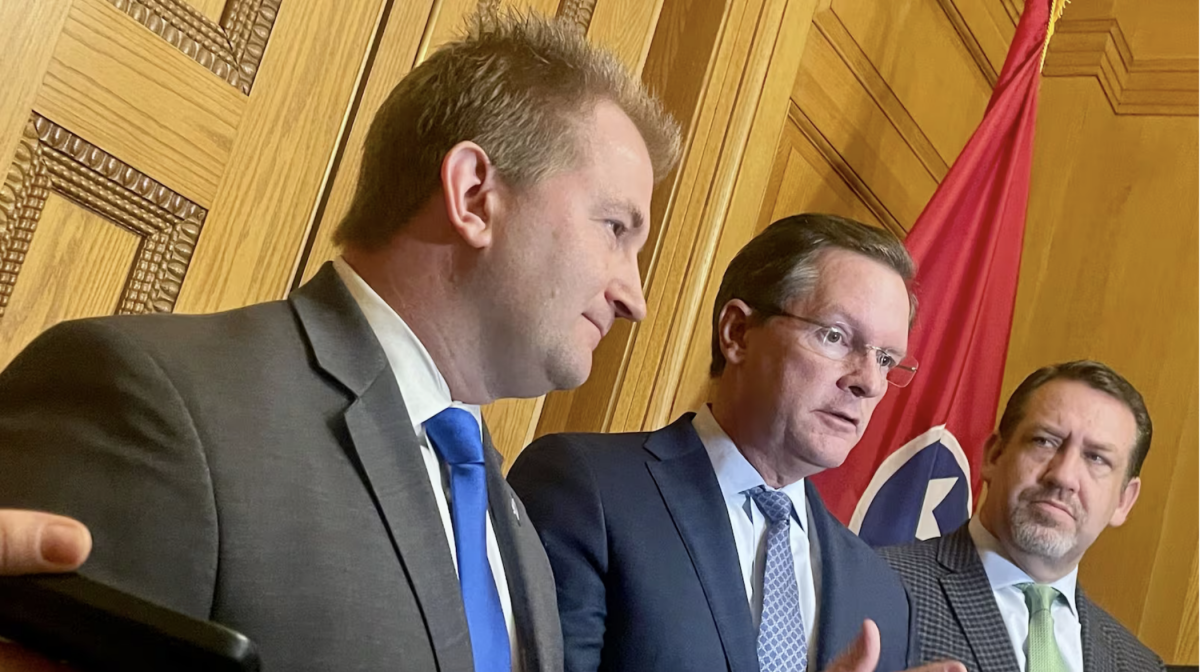In the end, the gulf between competing school voucher bills in Tennessee’s legislature was just too wide to cross.
Gov. Bill Lee acknowledged Monday that his push to create a universal school voucher program — which had been on the ropes for more than a month — was dead for the year after Republican leaders in the Tennessee House and Senate were unable to break through disagreements about testing and funding.
“While we made tremendous progress, unfortunately it has become clear that there is not a pathway for the bill during this legislative session,” Lee said in a statement Monday.
The Republican governor vowed to return with another plan next year and added that he’s disappointed for families “who will have to wait yet another year for the freedom to choose the right education for their child.”
The proposal’s failure this year hands Lee one of the biggest defeats of his administration, now in its second term.
It also signals that for all the momentum vouchers have in Tennessee — including a string of victories in the courts and legislature — Lee’s statewide proposal remains a divisive policy because of its potential to destabilize urban, suburban, and rural public school districts, and add a new burden on state finances.
For now, Tennessee only has its targeted voucher program in three urban counties, which provides taxpayer funding to 2,095 students to pay toward private school tuition, plus a smaller voucher program for students with certain disabilities.
As part of his broader school-choice agenda, the governor wanted his new voucher program to eventually become available to every K-12 student across Tennessee, regardless of their family income, and lawmakers took up two vastly different bills from the House and Senate.
But the chambers deadlocked on two issues, according to Senate Education Committee Chairman Jon Lundberg, the Bristol Republican who worked with House Republican leaders for weeks to try to reach a compromise.
First, in addition to creating a new private school voucher program, the more expansive and expensive House version sought to dramatically reduce testing and accountability for public school students.
“We had worked really hard to get those measures into place,” Lundberg said, “and believe it would be a step backward for our state.”
Second, the House version proposed increasing the state’s contribution toward public school teachers’ medical insurance coverage from 45 percent to 60 percent — and paying for it with funding earmarked for teacher raises.
That funding pathway closed last week when the legislature approved a 2024-25 budget that retained the $125 million that Lee had set aside to increase the annual minimum salary for public school teachers from $42,000 to $44,500, as promised last year by the governor.
“Ultimately, the House and the Senate had looked at education freedom scholarships through two different lenses,” Lundberg told Chalkbeat on Monday. “We looked at it as school-choice legislation. The House looked at it as a way to achieve both school choice and education reform.
“Our perspectives were just so different that we could not come together at the end,” he said.
Timing and cost were factors
As the legislature entered what’s expected to be its final week of the 2024 session, lawmakers worried about the timing of creating an expensive new program in the midst of flattening revenues and during an election year in which most of their names will be on the ballot.
The voucher program would have been expected to grow over time, likely subsidizing tuition for families who would have chosen private schools anyway. In the program’s second year, according to financial analysts, the Senate version’s projected cost was $287 million, while the House version was projected to cost $384 million.
In addition, more than 50 Tennessee school boards were on record opposing the plan. And the research shows little recent evidence that vouchers improve test scores.
The hurdles were especially problematic in the House, where voucher proposals have historically been harder to pass. To win more votes in that chamber, GOP leaders added enticements aimed at public school supporters to reduce testing time for students, require fewer evaluations for high-performing teachers, and give districts extra money to help with their building costs, as well as more funding for teachers’ medical insurance costs.
On Monday, House Speaker Cameron Sexton framed the debate as helpful for future talks even though it didn’t produce a consensus this year.
“Universal school choice came closer to a full vote than it had ever been in the past,” Sexton said in a statement. “We will continue working until all parents have the same opportunity to use their tax dollars to choose the best school for their child.”
Democrats, who were united in their opposition to vouchers, said the governor’s proposal ultimately crumbled because many Tennesseans pushed back on a plan that generated more questions than answers.
“From the start, the governor’s proposal was heavy on talking points and light on the substance of how it would work and how much it actually would cost,” said Sen. Jeff Yarbro of Nashville. “The funding and the accountability pieces were always going to be the sticking points,” he added, “because voucher proponents really want the funding without the accountability.”
Even as voucher supporters quickly promised to try again next year, groups representing the state’s teachers hailed the governor’s loss as a win for Tennesseans.
“Governor Lee’s proposal was poorly written, arriving late in session, and had zero accountability in the plan,” said JC Bowman, executive director of Professional Educators of Tennessee.
The leaders of Arlington Community Schools near Memphis, who issued a fiery statement in December denouncing Lee’s voucher plan as part of a systematic attack on public schools, said they were exhilarated by the legislation’s defeat — and troubled that the governor is already talking about next year.
“He hasn’t even taken a day to understand why his signature bill failed,” said Superintendent Jeff Mayo. “That tells me he doesn’t care to listen to our concerns. The end-game is to ultimately usher vouchers into Tennessee to fund private schools, despite the lackluster evidence that it will actually help students.”
Voucher policies have advanced under Lee
For years, school voucher advocates had watched their policy dream come up short in Tennessee before racking up a string of victories after Lee took office in 2019 amid significant turnover in the GOP-controlled legislature.
Lawmakers passed a bill on a narrow, controversial vote in the House of Representatives during Lee’s first year in office to help create an education savings account program.
The targeted program rolled out in 2022 in Memphis and Nashville for students from low-income families attending low-performing schools. Voucher opponents challenged the law in court and had some early legal wins, but the Tennessee Supreme Court declared the law constitutional in 2022.
After the program’s accelerated rollout and the addition of Hamilton County during its second year, the governor took another big step: proposing a separate statewide Education Freedom Scholarship program to launch this fall with up to 20,000 students, and eventually to eliminate all the geographic and family-income restrictions.
Dueling bills from the House and Senate easily advanced through education committees, but stalled for four weeks in finance committees before the governor accepted defeat.
In his statement Monday, Lee reiterated his reasons for pressing ahead, adding that he’s “never been more motivated.”
“It’s very simple,” he said. “This is about every Tennessee student having the opportunity to succeed, regardless of their ZIP code or income level, and without question, empowering parents is the best way to make sure that happens.”
Marta Aldrich is a senior correspondent and covers the statehouse for Chalkbeat Tennessee. Contact her at maldrich@chalkbeat.org.
Memphis reporter Laura Testino contributed to this report. Contact her at ltestino@chalkbeat.org.
Chalkbeat is a nonprofit news site covering educational change in public schools.























